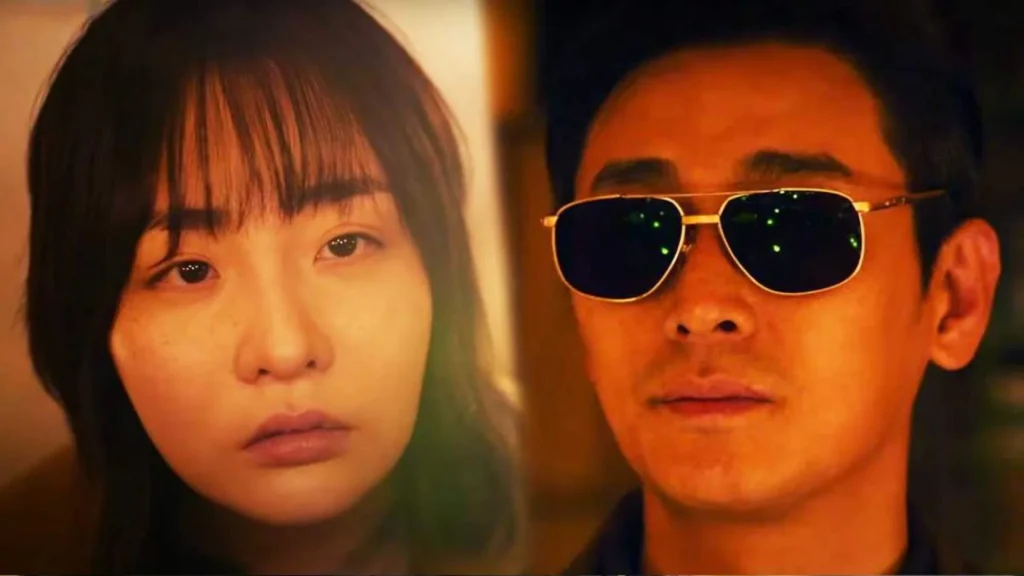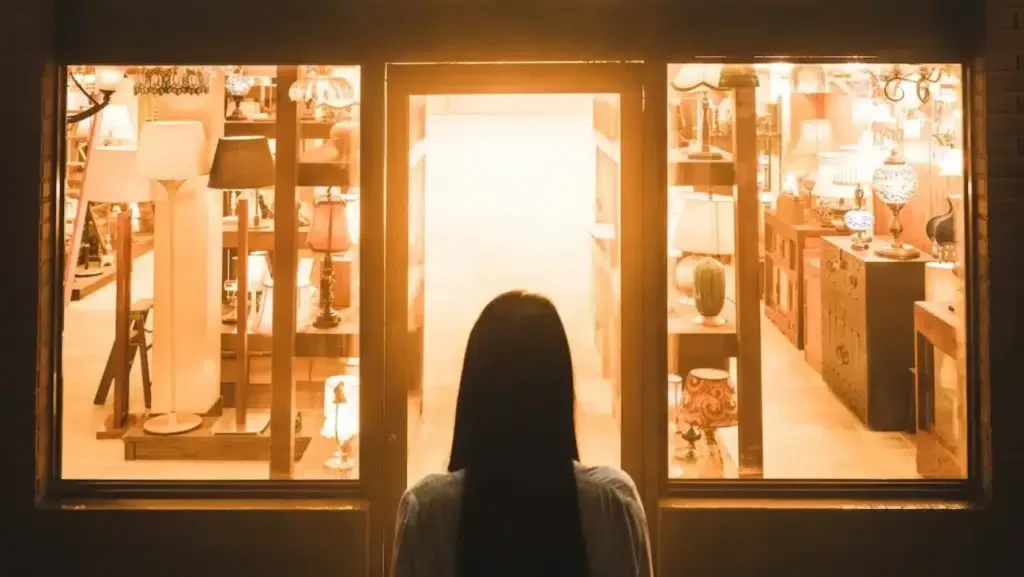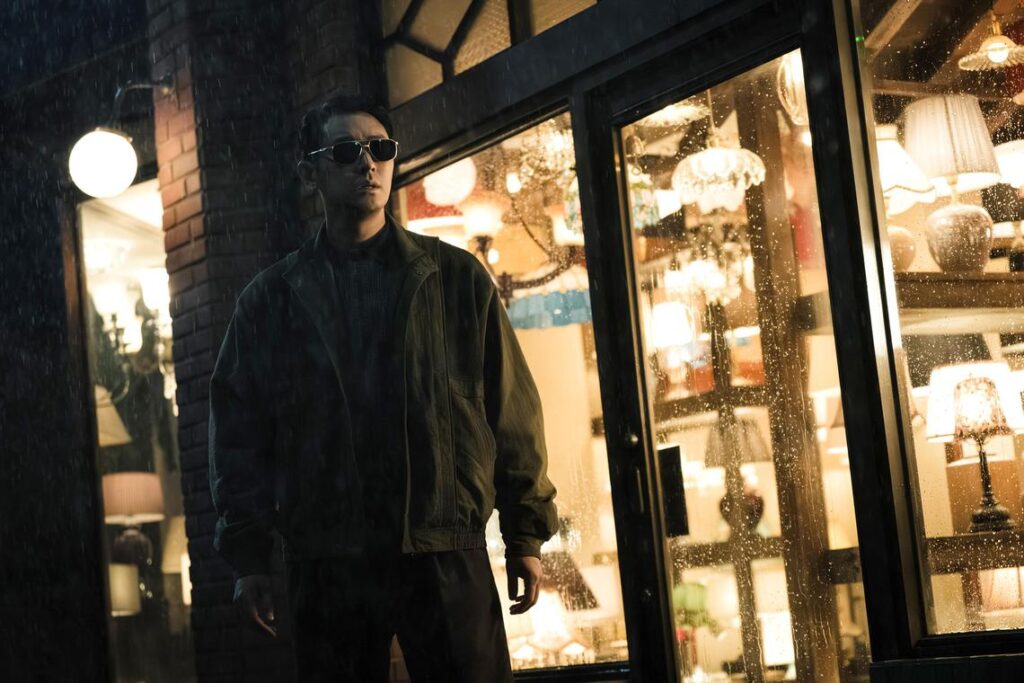Every now and then, a Korean production comes along that shakes drama fans' emotions, generates waves of theories on Reddit, and brings the internet to a standstill. Light Shop, Disney+'s new drama, is exactly that kind of series. Since its premiere, it has attracted attention not only for its mysterious and supernatural setting, but mainly for its emotional handling of sensitive themes like death, regret, and hope. In other words, it's not just about ghosts—it's about what people leave behind.
The first point that draws attention is the origin of the plot: Light Shop was born from a webtoon written by Kang Full, an author known for creating stories with strong emotional appeal and supernatural elements. Those who have followed Moving, another Korean hit on Disney+, knows that Kang Full doesn't mess around when it comes to creating worlds that move us. But in Light Shop, he outdid himself. The plot takes place in a lamp shop that only opens at night. And it's no ordinary shop: its customers are people in life-or-death situations—some already dead, others about to pass away—all searching for something they couldn't solve in life.
The Korean series delves into the fantasy genre with a dark, but above all, human, twist. It delivers the kind of emotion that only dramas can provide: a mix of tears, chills, and reflection. So, it didn't take long for Light Shop became one of the most talked about topics on social media.
A strong cast and captivating performances
At the center of the story is Ju Ji-hoon as Jung Won-young, the mysterious shop owner. With a restrained yet intense performance, he holds the series together with his enigmatic presence. Ju Ji-hoon is a seasoned actor, and this is evident in his character's silences, his long gazes, and the way he conveys pain without saying a word. He's the kind of protagonist you can't fully understand, but feel compelled to protect.
Alongside her, we have Park Bo-young playing a heartbroken nurse. Her character connects with the store in a subtle but powerful way. The chemistry between them isn't romantic—it's emotional. It's as if they're two broken souls trying to make sense of the world together. That alone would make Light Shop a remarkable series, but the drama goes beyond that.
Each episode, a touching story
The structure of the series is reminiscent of anthologies such as Hotel del Luna or Mystic Pop-up Bar, where each episode features a new "client" with a different drama. But here, the cases are darker and more existential. A man killed in an accident tries to say goodbye to his wife. A woman unaware of her death desperately searches for her lost dog. A young man who committed suicide seeks forgiveness from his parents. And the list goes on...

With each new visitor, the store takes on a new glow—and the audience, a new reason to cry. These short stories intertwine with the central arc of the protagonists, who also carry their own traumas. And it's in this intersection of pain and redemption that the series shines. It reminds us that we all carry baggage, and that often we just want a chance to make peace with what we left unfinished.
Visuals, soundtrack and emotional atmosphere
Visually, Light Shop is impeccable. The photography is dark, melancholic, but full of symbolism. The lamps aren't just objects—they represent lives, connections, stories. And when one of them goes out… we feel it. The aesthetic is reminiscent of films like The Legend of the Headless Horseman or Sleepy Hollow, with deep shadows and spotlights that create a unique ambiance.

The soundtrack follows this tone, with soft music and sad instrumentals that amplify emotions. It's not uncommon to see comments like "I cried just watching the background music" on drama forums. Everything was carefully designed to stir emotions—and it worked.
Why so much buzz on the networks?
The answer lies precisely in the way the Korean series addresses human pain. Light Shop It's not a story about scary ghosts, but about broken people. It's about the need for forgiveness, for goodbyes, for reunions—even when they're impossible. This makes the audience relate on a deep level. It's the kind of pain that can't be explained, but that everyone has felt.
As a result, the episodes quickly spread across social media. On TikTok, emotional scenes went viral with captions like "this destroyed me" or "I can't stop crying." On Twitter, fans created threads with theories about the shop's mysteries, the protagonist's past, and the symbols hidden in each episode. And on Reddit, debates erupted in drama and horror forums, debating whether the shop owner is alive, dead, or in some kind of emotional purgatory.
International Impact and Success of Disney+
It is worth noting that Light Shop quickly became the most-watched Korean series on Disney+ in several countries. Its success was so great that it surpassed even more popular Western releases on the platform. This shows how Korean content, especially when well-produced and emotionally profound, has global appeal.

And it's not just curiosity. What attracts viewers is authenticity. The series doesn't try to be something it's not. It embraces its Korean identity, respects its webtoon origins, and delivers a coherent and sensitive narrative.
Final Thoughts: Why Light Shop it is worth it?
If you're looking for an action drama, this isn't the focus here. But if what you want is a story with soul, one that makes you reflect on life, death, and what lies in between... then get your tissues ready. Light Shop will touch your heart like few dramas can. It's melancholic, yet beautiful. Sad, yet necessary. Scary, yet full of light.
It's a series about the invisible—what we feel but can't name. About unresolved goodbyes, hidden guilt, broken promises. And yet, it leaves room for hope. Because, in the end, the light that shines in each lamp is proof that no story ever ends completely while someone still carries it in their heart.

Don't have this streaming service? Then click the button below and find out how to watch your favorite movies and series for free!

